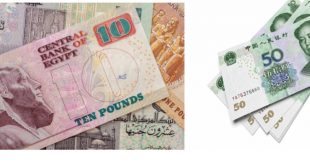Published: March 20,2022

FILE PHOTO: The World Bank Group headquarters in Washington, D.C., U.S. /Getty Images
The World Bank has approved 85.77 billion shillings (about 750 million U.S. dollars) to help accelerate Kenya’s ongoing inclusive and resilient recovery from the COVID-19 crisis.
The World Bank said in a statement released on Thursday that the Development Policy Operation (DPO) will help Kenya strengthen fiscal sustainability through reforms that contribute to greater transparency and the fight against corruption.
Keith Hansen, the World Bank country director for Kenya, Rwanda, Somalia and Uganda, said that the government has maintained the momentum to make critical reforms progress despite the disruption caused by the pandemic.
“The World Bank, through the DPO instrument, is pleased to support these efforts which are positioning Kenya to sustain its strong economic growth performance and steering it toward inclusive and green development,” Hansen said.
The DPO is the second in a two-part series of development operations initiated in 2020 that provides low-cost budget financing along with support to key policy and institutional reforms.
It organizes the multi-sector reforms into three pillars — fiscal and debt reforms to make spending more transparent and efficient and enhance domestic debt market performance; electricity sector and public-private partnership (PPP) reforms to place Kenya on an efficient, green energy path, and boost private infrastructure investment; and strengthening the governance framework of Kenya’s natural and human capital including the environment, land, water and healthcare.
The Bank said its DPO also supports Kenya’s capacity to handle future pandemics through the establishment of the Kenya National Public Health Institute (NPHI), which will coordinate public health functions and programs to prevent, detect, and respond to public health threats, including infectious and non-infectious diseases, and other health events.
“By the end of 2023, the program aims to have five strategically selected ministries, departments, and agencies, procuring all goods and services through the electronic procurement platform,” it said.
The lender also said measures on infrastructure will create a platform for investments in least-cost, clean power technologies, and enhance the legal and institutional setup for PPPs to attract more private investment. Aligning clean energy investments to demand growth and ensuring competitive pricing through a transparent, competitive auction-based system has the potential to generate savings of about 1.1 billion dollars over ten years at current exchange rates.
Alex Sienaert, the senior economist for the World Bank in Kenya, said the government’s reforms supported by the DPO help reduce fiscal pressures by making public spending more efficient and transparent, and by reducing the fiscal costs and risks from key state-owned entities.
“The package includes measures to spur more private investment and growth, whilst strengthening the management of Kenya’s natural and human capital which underpin its economy,” Sienaert added.
Xinhua
 Africa -China Review Africa -China Cooperation and Transformation
Africa -China Review Africa -China Cooperation and Transformation
